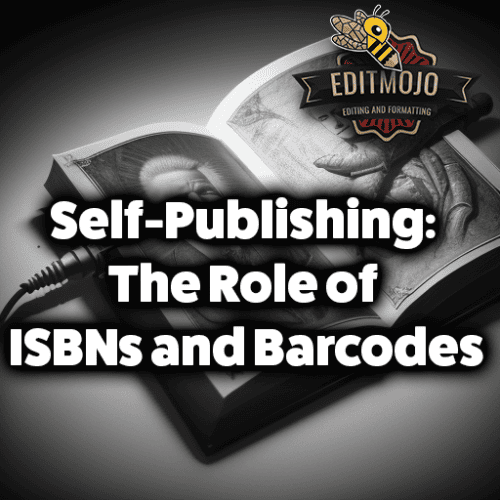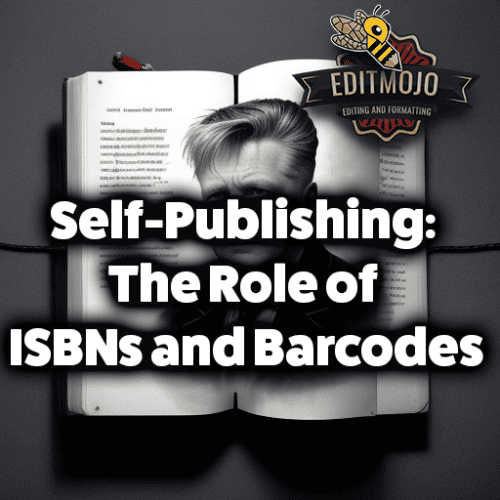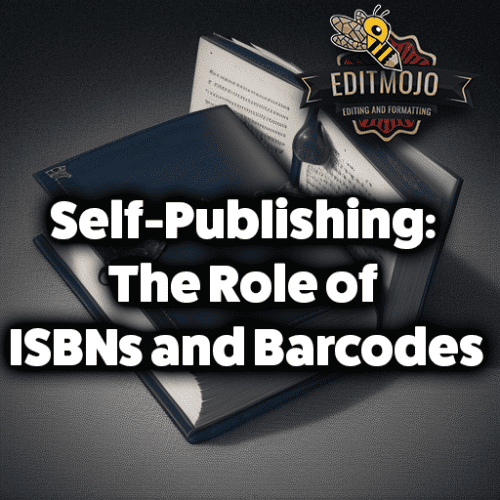Self-Publishing: The Role of ISBNs and Barcodes
Self-Publishing: The Role of ISBNs and Barcodes. The world of literature is no longer confined to the brick-and-mortar boundaries of traditional publishing houses. Thanks to the digital revolution, the landscape has changed, and now, writers can bypass traditional channels and connect directly with their readers. This phenomenon, known as self-publishing, has opened up a whole new world of possibilities. But with this newfound independence comes new responsibilities, one of which is understanding the importance of International Standard Book Numbers (ISBNs) and barcodes. In this comprehensive guide, we’ll delve into the role these identifiers play in the realm of self-publishing.
Key Takeaways
| Topic | Key Takeaway |
|---|---|
| Self-Publishing | It refers to the act of publishing one’s work independently without using a traditional publishing house. |
| ISBN | A unique identifier for books, allowing them to be tracked and identified globally. |
| ISBN in Self-Publishing | It gives the book a unique identity and allows for global distribution and sale. |
| Barcode | A graphical representation of the ISBN used for scanning at points of sale. |
| Barcode in Self-Publishing | Crucial for print-on-demand services and retail transactions. |
| Alternatives | Amazon assigns its own identifier known as ASIN for eBooks, hence an ISBN may not be required for solely eBook publishing. |
| Expert Insights and Tips | Buying ISBNs in bulk can save costs, and using barcodes on book covers prepares your book for wider distribution. |
Understanding Self-Publishing
Before diving into the core topic, let’s take a moment to reflect on what self-publishing truly means. At its core, self-publishing is the act of publishing one’s work independently, without using a traditional publishing house. This can include eBooks, print books, and even audiobooks.
The rise of self-publishing is closely linked to the advent of digital technology. With platforms like Amazon Kindle Direct Publishing (KDP), Smashwords, and Lulu, anyone with a story to tell can become an author. This has truly democratized the world of publishing, offering a platform to voices that might have previously gone unheard.

Dive into ISBN
The International Standard Book Number, more commonly known as an ISBN, is a unique numeric identifier used internationally to identify books. Instituted in 1970, ISBNs were designed to create a standardized method for identifying books, making it easier for publishers, booksellers, libraries, internet retailers and other supply chain participants to manage and track books.
ISBNs can be obtained from designated ISBN Registration Agencies worldwide, with the cost varying from country to country. In some countries, like Canada, ISBNs are free for publishers, while in others, like the US, there’s a charge associated with them.
The Role of ISBNs in Self-Publishing
In the context of self-publishing, ISBNs play a pivotal role. Not only do they give your book a unique identity, but they also allow it to be recognized and tracked globally. For self-publishers, this is significant because it allows your book to be sold in a variety of places, both online and offline.
Moreover, owning your ISBN gives you more control over your book. While platforms like Amazon KDP provide free ISBNs, using their ISBN means that they are listed as the publisher of your book. By obtaining your own ISBN, you maintain control over your work’s imprint and rights. Let’s take the example of Andy Weir, who initially self-published “The Martian” online. Having his own ISBN made it easier when the book was later picked up by Crown Publishing Group, catapulting it to best-seller status and eventually a successful Hollywood film.
Demystifying Barcodes
A barcode, in the context of books, is simply a graphical representation of the ISBN. It’s usually located on the back cover of a physical book and serves as a scanning tool for book retailers.
The connection between the barcode and the ISBN is inseparable. When a book is scanned at a retailer, the barcode converts into the ISBN, revealing all the pertinent information about the book: title, author, price, and publisher. This is integral for inventory management and sales tracking.

The Role of Barcodes in Self-Publishing
Barcodes play an integral role in print books’ distribution and retail process. When a book is sold in a bookstore or another physical retail location, the barcode is scanned at the point of sale. This allows the retailer to automatically pull up the book’s information, facilitating a smooth transaction.
Barcodes are also significant for print-on-demand services. With services like Lulu or IngramSpark, you upload your book files, and they print a copy whenever one is ordered. In this process, the barcode helps track the book’s information, ensuring the correct book is printed and shipped.
Real-world Benefits and Challenges of ISBNs and Barcodes
The advantages of ISBNs and barcodes extend beyond just identification. They are also pivotal for marketing and sales tracking. With an ISBN, your book becomes part of the global database of published works, allowing retailers and libraries to locate your book. The barcode enables efficient point-of-sale transactions, ensuring your book can be sold in physical retail locations.
However, managing ISBNs and barcodes as a self-publisher can be challenging. The cost of obtaining ISBNs can be a hurdle, particularly for authors just starting their self-publishing journey. In addition, understanding how to correctly assign ISBNs and generate barcodes can be a complex process.

Exploring Alternatives
While ISBNs are vital for print books, the question remains: Do self-published eBooks need an ISBN? Technically, no. Platforms like Amazon assign their own identifier, known as the Amazon Standard Identification Number (ASIN). So, if you’re solely focused on publishing eBooks through Amazon, you may not require an ISBN.
Expert Insights and Tips
“Understanding ISBNs and barcodes is crucial for any self-publisher,” says Joanna Penn, a successful self-published author and host of the Creative Penn Podcast. “They might seem intimidating at first, but they’re your ticket to a broader distribution network.”
One of her top tips is to buy ISBNs in bulk to save costs if you plan to publish multiple books. Another tip is to always use the barcode on your book cover. This ensures it’s ready for print-on-demand services and brick-and-mortar retail stores.
Conclusion (Self-Publishing: The Role of ISBNs and Barcodes)
ISBNs and barcodes may seem like a minor detail in the grand scheme of self-publishing. However, their importance should not be underestimated. They are the keys that unlock the world of global distribution and retail for your books. As you embark on your self-publishing journey, take the time to understand these identifiers and how to use them effectively.
Self-publishing can be an exhilarating ride, filled with challenges, learning curves, and ultimately, the joy of seeing your work in the hands of readers. As you navigate the complexities of ISBNs and barcodes, remember: every detail is a step towards crafting a successful self-publishing career.
Additional Resources
For more information on obtaining ISBNs and generating barcodes, check out these resources:
Happy publishing!
Top Five Questions and Answers
| Question | Answer |
|---|---|
| What is an ISBN and why is it important for self-publishing? | An ISBN (International Standard Book Number) is a unique identifier for books. In self-publishing, it gives the book a unique identity and allows it to be recognized and tracked globally. |
| What is the role of a barcode in self-publishing? | Barcodes, which are graphical representations of the ISBN, are crucial in the retail process. They allow for easy scanning at points of sale and are essential for print-on-demand services. |
| Can I self-publish without an ISBN? | Yes, technically it is possible, especially for eBooks on platforms like Amazon, which assigns its own identifier known as ASIN. However, having an ISBN allows for broader distribution and easier tracking of your book. |
| Is there a cost associated with obtaining an ISBN? | Yes, there can be a cost, but it varies from country to country. Some countries offer ISBNs for free, while others charge a fee. |
| What are some tips for managing ISBNs and barcodes effectively in self-publishing? | One tip is to buy ISBNs in bulk if you plan to publish multiple books, as it can be more cost-effective. Always use the barcode on your book cover to make it ready for print-on-demand services and retail stores. |
